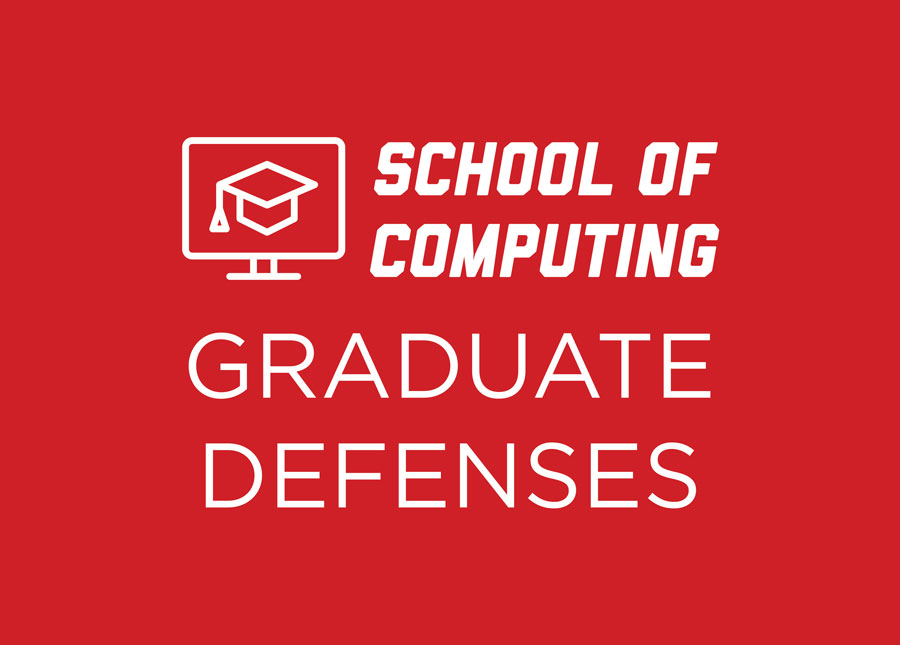
M.S. Thesis Defense: Rachel Michaela Bradley
Friday, November 22, 2024
10:30 AM
347 Avery Hall
"Prevalence of Autism Spectrum Characteristics in Students Taking Undergraduate Computing Courses"
The incidence rate of autism spectrum condition (ASC) has increased significantly in recent decades, as awareness of the condition and its impacts increase amongst clinicians, parents, and the general population. Medical literature has proposed that there may be a relationship between ASC and participation in the computing field. This study tests for the prevalence of autism spectrum condition traits measured by delivering the Autism Spectrum Quotient (AQ) to a population of undergraduate computer science students. We examine the relationships between AQ scores and students taking undergraduate computer science classes, sex, socioeconomic status, and parents in the computing industry. Additionally, we compare the AQ scores of our participants with publicly available control data. As in previous studies of ASC, we saw a noteworthy increase in AQ score amongst participants over the average general population rate reported in the literature. We saw a statistically significant increase in mean AQ score across most demographic metrics, including both higher male and female means and higher means in the topmost socioeconomic classes. This supports existing evidence for an increase in the prevalence of ASC amongst the general population, as well as for a relationship between ASC and participation in computing.
Committee:
Dr. Stephen Cooper, chair
Dr. Justin Firestone
Dr. Seth Polsley
PhD Dissertation Defense: Salomé Perez-Rosero
Tuesday, November 26
9 AM
103C Avery Hall
Zoom: https://unl.zoom.us/j/96936787085
"Mining Work Items to Streamline Software Maintenance Tasks"
Software engineering maintenance tasks often require associating code changes into groupings of related units of work to have as much information as possible about the developments toward addressing a specific code task. A comprehensive understanding of how a code task has evolved helps developers make better decisions about changes in the overall codebase, where a commit represents the set of code changes made to the codebase at a specific time. While the concept of work items as logically related code changes has been primarily theoretical, its impact on software maintenance tasks, such as tracing the origins of bugs or fixes spanning multiple commits while scanning through real-world software repositories' commit histories, remains unexplored. This thesis introduces heuristic-based algorithms to mine work items from commit histories in open-source repositories across different scenarios. First, when issue tags are available throughout the commit history, we developed our first heuristic that mines associations out of validated issue tags from issue tracker systems such as Jira and GitHub. We generated a dataset of approximately 130,000 work items across repositories written in Java, Kotlin, and Python, with each work item group having a numerical confidence score for relatedness. Second, in scenarios where a reference commit is known and the goal is to generate work items associated with it, we developed our second heuristic that implements a method-level tracking mechanism. This approach scans the repository’s commit history backward, identifying overlapping code modifications linked to the reference commit to generate related work items. Third, when an automated and fast way for identifying work items is needed, we explore using pre-trained LLMs with prompts containing different levels of detail from commit diffs and logs to classify commit pairs as related or unrelated work items. Alongside this, we generate two work item datasets with labeled ground truth for fine-tuning purposes. Finally, we apply our top-performing work item heuristic to a software maintenance task in the context of the SZZ algorithms, which aim to track a bug's introducing commit for a given fix commit. Specifically, we built a new SZZ variant that integrates work item awareness, which generated the first empirical evidence that bugs and fixes constitute work items; and reported a 4-18% improvement in bug-introducing commit identification over traditional SZZ algorithms.
Committee:
Dr. Robert Dyer and Dr. Witty Srisa-an, Advisors
Dr. Bonita Sharif
Dr. Lisong Xu
Dr. Qiuming Yao
Dr. Yi Qian
M.S. Thesis Defense: Qing Liu
Tuesday, November 26
10:30 AM
19 Avery Hall
"Quantitative Verification for Massive Linear Systems"
The verification of linear systems, particularly within the scope of reachability analysis and safety verification, has been an active area of research for decades. Most verification methods primarily focus on qualitative verification, which answers whether or not a system may violate specified safety conditions. This paper extends this qualitative verification to quantitative verification by introducing a novel approach, employing probabilistic stars (Probstars), which augment traditional star sets by integrating Gaussian-distributed random variables with predicates. This quantitative verification enables a probabilistic understanding of reachability in high-dimensional systems, providing the probability of violation for discrete-time, linear time-invariant (LTI) systems. The set of reachable states at the discrete-time step can be written in matrix exponential, which arises from the solution to the ordinary differential equation (ODE): x'(t) = A x(t) + B u(t) starting from the given initial state. However, computing the matrix exponential is intractable for large-scale systems due to excessive memory demands and computational burdens. To tackle these challenges, our method utilizes low-dimensional projections of system variables, such as projecting the full state space onto initial and output spaces, to improve memory efficiency. Additionally, we implement efficient numerical simulations with iterative techniques to approximate solutions to linear systems. These simulations take advantage of the sparsity in high-dimensional system dynamics by employing Krylov subspace methods, such as Arnoldi and Lanczos iterations, to improve computational efficiency.
Committee members:
Dr. Dung Hoang Tran, Chair
Dr. Hamid Bagheri
Dr. Bhuvana Gopal